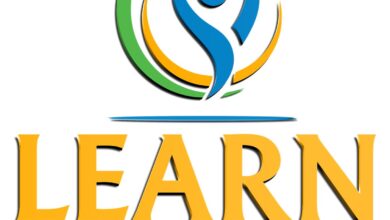
What Europe Denied Africa: Unpacking Education Neglect
Europe did not invest in education in its African colonies primarily to maintain control over the local populations. Europeans feared that educating Africans could lead to resistance and challenge their colonial power.
The deliberate lack of investment in the educational infrastructure of European colonizers mars the legacy of colonialism in Africa. Education builds knowledge and sparks aspirations for self-governance, which stood in direct opposition to colonial objectives. European powers implemented a policy of minimal educational development to ensure economic exploitation and retain a manageable workforce without the power to question or revolt.
Such a strategy guaranteed a vast labour pool to extract the continent’s rich resources, maintaining Europe’s global economic dominance. Understanding this aspect of colonial history is crucial in grasping the broader socio-economic challenges faced by post-colonial African nations today and the long road ahead in building robust educational systems for their citizens.
Colonial Shadows On African Education
Education in Africa has a complex tapestry woven with the threads of colonial influence. During their reign over African colonies, European powers set the foundation for many educational systems that are still in place today. Understanding why Europe didn’t invest in education reveals much about the long-term impacts on the continent.
Historical Roots Of Educational Disparity
The age of colonization marked a significant shift in Africa’s educational journey. Colonial powers often viewed education as a tool for control rather than empowerment. Educational investment was minimal and strategic, focusing on creating a small elite who could assist in administration rather than uplifting the entire population.
- Limited access to education for the masses.
- Schools taught skills for clerical work, not critical thinking.
- The aim was to maintain social hierarchies.
Legacy Of Colonial Education Policies
The legacy of colonialism in education still casts long shadows across Africa. Old policies continue to affect the educational landscape, contributing to ongoing disparities. European colonizers left African colonies with educational systems that were not designed for self-sufficiency or growth.
| Aspect | Colonial Focus | Current Impact |
| Language of Instruction | European languages | Linguistic barriers to education |
| Curriculum Design | Europe-centric content | Lack of relatable and relevant content |
| Educational Goals | Administrative training | Insufficient critical thinking and innovation |
Education systems were tailored to the needs of European powers, not the colonized. The struggle to overhaul these systems began with independence, yet progress has needed to be made faster. This entrenched colonial legacy continues to impact millions, perpetuating educational inequity.
Diverging Curricula: Misalignment With African Needs
Education shapes a nation’s future. Yet, European powers did not create schools for African needs during colonization. This oversight has left a lasting impact.
The curricula used did not align with local cultures or economies. Let’s delve into the reasons behind this mismatch.
The Eurocentric Curriculum
Colonial schools focused on European history, language, and values. This meant students learned more about Shakespeare than local heroes. Local languages took a backseat, making education less accessible for many.
- Focus on Western literature over African oral traditions
- The teaching of European geography over understanding local environments
- Emphasis on Christian religious studies, often ignoring indigenous beliefs
Such content did not aid in understanding the African social or political context. The gap widened between Western education and African realities.
Relevance To African Development
Education tailored to Africa’s development was scarce. Skills for local industries and agriculture were overlooked. Instead, schools produced clerks for colonial administration.
| European Curriculum Focus | Needs of African Societies |
| Administrative Skills | Agricultural Development Knowledge |
| Western Legal Systems | Understanding of Local Governance |
| European Languages | Local Language Literacy |
With such a disconnect, education fell short of fostering self-sufficiency. The result was a need for more professionals in sectors crucial for independent growth, such as healthcare, engineering, and technology.
Resource Allocation: A Tale Of Neglect
Resource Allocation: A Tale of Neglect reveals a startling aspect of colonial rule. European powers should have prioritized education in their African colonies. This lack of investment in people’s skills formed a grim part of their legacy. Natural resources and cash crops became the focus instead.
Investment In Physical Infrastructure
Colonial powers built roads, ports, and railways to export African goods. These projects often did not serve the needs of local populations. Schools, hospitals, and housing fell by the wayside. Education infrastructure saw minimal development. Most resources went to projects that directly benefited the colonizers’ economies.
Teacher Training And Salaries
Education requires qualified teachers. In colonial Africa, teacher training could have been more adequate. The colonies needed proper training institutions. Those in existence faced underfunding. Teacher salaries also remained low, deterring many from the profession. Consequently, few local teachers emerged, and educational standards suffered.
| Aspect | Status in Colonies |
| Teacher Training Institutions | Insufficient and Underfunded |
| Availability of Trained Teachers | Very Low |
| Teacher Salaries | Not Competitive |
- Neglected teacher training resulted in poor education quality.
- Low salaries discouraged individuals from teaching careers.
- Limited incentives contributed to a need for more educators.
Key Insights:
- Colonial powers focused on resource extraction over education.
- Educational infrastructure was overlooked, hampering development.
- Local capacity building was not a goal for European colonizers.
Language Barriers And Cultural Discontinuity
Language barriers and cultural discontinuity stood as formidable hurdles in the path of educational investment in Africa by European colonial powers. These educators faced the complex task of harmonizing African cultural contexts with European educational models. This often resulted in a conflict of interest that impeded the establishment of adequate educational systems within the colonies.
Medium Of Instruction Controversies
One of the core issues was the medium of instruction. Colonial powers promoted their languages in schools, disregarding local languages. This move created an educational gap. African children needed help learning an alien language, which led to high dropout rates and a general disinterest in formal education.
- Students faced challenges understanding new concepts in a foreign language.
- Teachers often needed to prepare to teach in multiple languages.
- Parental involvement was low due to language differences.
Loss Of Indigenous Knowledge
The educational systems established by European colonizers often led to the loss of indigenous knowledge. Traditional African educational practices and knowledge systems were sidelined. Colonial education amplified a rupture from African cultural heritage.
- African history and perspectives were rarely included in the curriculum.
- Traditional skills and local wisdom were undervalued.
- Colonial curricula favoured European achievements and viewpoints.
This educational model led to a generation of Africans being educated to appreciate European history and knowledge over their own. This continues to be felt in the continent’s varied education systems today.
Globalization And Its Impact On African Education
Globalization and its impact on African education have brought about challenges and opportunities. With the world becoming increasingly interconnected, Africa’s education systems are evolving to meet international benchmarks. Yet, historical underinvestment, mainly from European colonial powers, has made the transition complex. These powers largely neglected education in their African colonies, focusing on resource extraction rather than human capital development. This legacy has significant implications for African nations as they strive to adapt their educational infrastructure in a globalized world.
Technology: A Double-edged Sword
Technology reshapes learning and connects African classrooms to global knowledge networks. It also poses significant risks. Although technology can bridge educational gaps, the digital divide remains a stark reality. Many African students still need access to the Internet and modern devices. Yet, for those with access to technology:
- Enhances learning materials through digital textbooks and online resources.
- Fosters communication skills by connecting with peers and educators globally.
- Encourages digital literacy, which is essential for competing in a tech-driven job market.
Adapting To Global Education Standards
Adapting education standards to a global framework requires meaningful investment and curriculum reforms. This transition aims to equip students with skills demanded by the global economy. Africa’s educational institutions increasingly strive to:
- Align curricula with international standards.
- Improve teacher training to deliver global competencies.
- Invest in language skills, mainly English and French, to foster international communication.
The pathway to aligning with global education standards is multifaceted. Key steps include:
| Area | Action |
| Policy development | It is creating policies that prioritize education and international collaboration. |
| Infrastructure | Building schools and enhancing existing facilities with modern technology. |
| Teacher empowerment | Providing continuous professional development and resources for educators. |
Striving For Autonomy: Educational Reform Movements
Africa’s quest for educational reform gained traction as nations sought independence. European colonizers often neglected education within their African territories. This lack of investment led to movements toward educational autonomy. Reformers aimed to create systems that reflected African values and needs.
National Policies For Localized Education
Post-independence African leaders knew education was vital to growth. They set out to overhaul existing systems. These policies focused on local languages and cultural relevance. The aim was to bridge educational gaps. Here are the critical steps taken:
- Implementing local curricula: Tailored to meet regional needs.
- Training native educators: To ensure cultural and historical accuracy.
- Building more schools: To increase access to education.
Rise Of Pan-African Educational Ideals
The Pan-African movement inspired educational changes. This movement united Africans and the global African diaspora. It emphasized education as a tool for liberation. Here’s what this involved:
- Exchange programs: Fostered unity and knowledge sharing.
- African history in curriculum: Strengthened identity and pride.
- Scholarships: Enabled study at home and abroad.
Pan-African ideals continue shaping education across the continent.
Aid, Loans, And Strings Attached
Aid, Loans, and Strings Attached often colour the history of post-colonial relationships.
In discussing why Europe may not have invested in education in its African colonies, the financial support that did flow often had conditions. These impacted sovereignty and the development of education systems.
The Role Of International Organizations
International organizations frequently step in to offer aid or loans.
Their goals aim to foster development. This includes educational advancement.
Examples include the World Bank and the International Monetary Fund (IMF).
They provide finance options for countries to build their educational infrastructures.
- These loans are for building schools.
- They train teachers.
- They create educational materials.
Conditionalities And Educational Sovereignty
Conditionalities are terms set by organizations when giving aid.
They ensure accountability and guide how funds are used.
Educational sovereignty is the power to control one’s education system.
Conditionalities can limit this control.
For example:
| Conditionalities | Impact |
| Implement certain policies | May clash with local educational priorities |
| School Curriculum | Limits local curriculum design |
| Repayment terms | Strains national budgets |
Conditionalities often prioritize economic over educational goals.
Countries can lose a degree of control over their education systems.
Looking Ahead: Pathways For Empowerment
As we navigate the complex history of colonialism, we must focus on the future. Empowerment through education stands as the beacon of hope for nations once under colonial rule. Understanding the past opens doors to reshaping the educational landscape in Africa. This transformation can drive progress and self-sufficiency.
Innovation In Educational Models
Breaking away from outdated systems, African nations are embracing innovative education models that prioritize local needs and cultures.
- Interactive learning replaces rote memorization.
- Technology integrates with traditional teaching.
- Curricula reflect local languages and heritage.
New educational platforms are emerging, transforming the learning experience.
Sustainable Investment For Longevity
Securing the future of education in Africa means investing sustainably. Here’s how:
- Support from global partners is crucial
- Focus on training quality educators
- Invest in infrastructure that lasts
Every dollar invested in education fuels long-term growth and stability.
Conclusion
Understanding the reasons behind Europe’s lack of investment in education within its African colonies is crucial. It reflects the historical priorities and economic strategies of the era. This knowledge enables us to address educational disparities today. By learning from the past, we pave the way for equitable growth and informed development strategies for the future.




